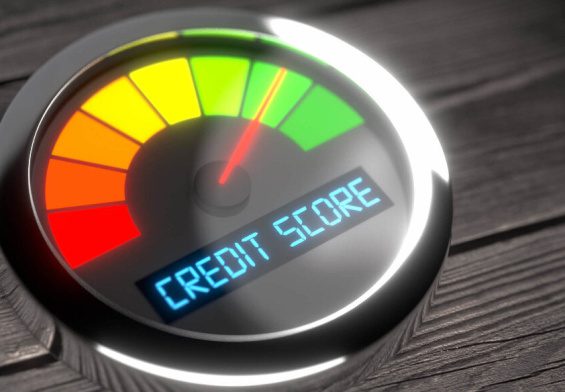
Table of Contents
Introduction: How to Invest in Real Estate with Little to No Money
Real estate investments can therefore be said to be the age-old route to being wealthy. However, many of the prospective investors are of the opinion that a lot of money is needed to launch the business. The fact is that there’re several of such measures that you can take to invest in real estate practically with no money at all. What follows in this guide will be those strategies highlighted, and how you can start constructing a portfolio of properties regardless of your starting capital.

1. House Hacking
House hacking is among the most widespread techniques allowed to those who want to start investing in a property with no money. The idea is simple: when you buy a property with more that two units, you occupy one unit and lease out the others. You can then easily afford the mortgage and be living rent-free or even generate an income from the rent of the other units.
How It Works:
FHA Loans: In as little as 3. D 5% down, an FHA (Federal Housing Administration) loan lets purchase a property with up to 4 units. To be eligible for this low-down-payment option, you must reside in one unit.
VA Loans: First time homeowners or people who can afford only small down payments can turn to VA loans, which many a times do not have this requirement at all.
House hacking is a perfect definition of investing in real estate because most of your living costs are covered as you create wealth from your house.
2. Real Estate Partnerships
Entering into a joint venture is another method of investing in the property with little money. In JV, one can use the other person’s funds, credit standing or experience in acquiring property. You may operationalize the business while your partner offers the capital or you may source a deal and a partner offer the capital.
Types of Partnerships:
Equity Partnerships: The both of you have equal ownership of the property and therefore, you both have an equal share in the property. For instance, one partner may contribute the down payment, the other one handling the remodeling of the health facility. Distributions are made according to the contribution made by each partner.
Joint Ventures: This type is suitable in a situation, where two companies would want to work together on a single project. Relationships are terminated once the project is over and the companies can divide the profit earned.
Deals can be mutual, but only if you have something that benefits both – more often it’s knowledge about the area, haggling abilities or time to oversee the house.
3. Seller Financing
Another method is the seller carry back which entails the property owner offering to finance you. You borrow from a direct lender, make payments directly to the seller; it does not involve use of a middle man. This may be useful if you have bad credit or no initial money for the deposit.
How It Works:
Negotiation: The interest, repayment term and the three borrower and the seller will have agree on are the rate, repayment and the maturity.
Flexibility: They are often more general than standard credit arrangements. Near the interest rate, you might then negotiate a lower down payment or ease on the number of payments due at the end of the loan period in form of a balloon.
Note that seller financing is appropriate for properties not easily to finance through conventional methods or sellers who need to dispose their properties quickly.

4. Lease Options
A lease option which is also called the rent to own means being able to manage a piece of property without necessarily having to own it. You take the property under a lease-purchase agreement and that for an extra charge you will be given the right to purchase the property at a later time. Typically through the pay rent process, part of it will be directed to reducing the price of the property.
Benefits:
Low Initial Cost: Courtesy the internet, often one is only asked to pay a small option fee.
Time to Build Capital: Besides, there is ample time to save for down payment, or increase ones credit status while in the property.
Lock-In Price: It is usually determined right at the time of signing of the lease agreement and keeps you safe from any increase in the market.
Lease options are one of many strategies that people can use to enter a property with virtually no cash laid down before the increase in property values.
5. Real estate investment trusts or REITs
In this case, if you would like to try your hands in real estate investment but without bricks and mortar, you can always invest in Real Estate Investment Trusts or REITs. REITs are classified as companies that own or have an interest in income-earning properties, manage properties or provide financial facilities for property investments. While using a REIT, you can buy stock with several other properties ranging within a category or much more diversified classes.
Advantages of REITs:
Liquidity: Basically, REITs are also different from physical properties for they can be traded like stocks.
Low Entry Point: REITS are quite accessible to the average investor and you can invest in them with as low as $100.
Diversification: This means that by investing in REITs you are actually diversifying with the portfolio of the properties the REITs holds, and this weakens the probability.
REITs are therefore suitable for individuals who seek to get involved in real estate investment but do not wish to take care of the properties.
6. Private Money Lenders
Normally, private money lenders are people or firms that offer funds for real estate business purposes. These loans are costlier than the normal mortgage loans but they are more flexible and the credit check is not stringent.
How It Works:
Finding Lenders: The sources for private money lenders include, through connection of people, groups that deal with investors in real estate and social media.
Flexibility: They can be structured in any way desirable to both the buyer and the seller, as to terms, interest rates, and schedules of payment.
Private money loans can be considerable if the borrower requires fast funding or if he/she cannot qualify for conventional financing.
7. Hard Money Loans
Private money loans are closely associated with hard money loans but differ in the sense that they are usually issued by firms focused on such loans. They are temporary in nature where a borrower gets a loan for as long as it takes to sell the property securing the loan, most of which are used for rehab purposes.
Pros:
Quick Approval: These hard money loans can also be approved within a short time say within a week or even a few days.
Collateral-Based: Credit approval is more on the property value than the borrower’s ability to repay credit facilities.
Cons:
High Interest Rates: They attract higher rates of interest which may range between 10/15%.
Short-Term: It is not long-term credit instruments; they have term that can go as short as six months and at most three years.
A hard money loan is ideal for any investor who requires working capital in a short time for a profitable real estate venture.

8. Wholesaling
Wholesaling is when one acquires a property and places it under contract and then assigns the contract to another buyer at a higher price. Experience has shown that for wholesaling to be effective; it is required that the properties be bought at throwaway prices.
Steps to Wholesale:
Find a Distressed Property: Concentrate on buildings that are not very popular among the clients or those which may be in a poor state.
Negotiate a Contract: Acquire the property under an ‘as-is’ purchase contract that you can transfer to another buyer without penalty.
Find a Buyer: Resell the contract to a real estate investors or a buyer at higher price.
Wholesaling can hardly be called a form of business that demands a great deal of money initially, it can be profitable in a few days, and this makes it ideal for inexperienced people.
9. Crowdfunding
Real estate crowdfunding entails investment in real estate projects together with other investors. By use of the internet, you can join other people in pooling cash together with the aim of purchasing bigger properties.
Advantages:
Low Minimum Investment: Others will enable you to invest with as low as $500.
Diversification: One should not invest in a single property or project but should invest in many in order to diversify the sort of risk you’ll have.
Passive Income: Take a cut of the revenues gotten from the property’s rent or sales of the property.
Real estate crowd funding is perhaps the most effective method of investing in this sector without using large amounts of capital or constant supervision.
10. Live-In-Then-Rent
The live-in- then-rent means buying a home, occupying the home for some time and later moving out then renting the home to others. This helps one to develop equity in the property and also owner occupant financing is usually cheaper; in terms of interest rates and down payment.
Benefits:
Low Initial Cost: Owner-occupant financing usually call for a smaller amount down payment.
Tax Benefits: Some of the resident expenses may also be deductible when calculating the tax returns, including the mortgage interest and the property tax.
This game is a long-term one, which means that you can gradually buy properties and add to your rent generation portfolio.
Conclusion
It is not only possible to buy property with very less or even no money down, it can be quite lucrative if done correctly. No matter if you start with house hacking, join a partnership, utilize such techniques as seller financing or lease option, or consider more sophisticated options like REITs or crowdfunding, there are many opportunities to begin building the wealth with the use of the real estate.
The finals still remain in knowing more and knowing how to expand your network of fellow investors and knowing when to be creative. I am here to tell you that it is feasible to start real estate investing if you are willing and do it the right way even if you have a low cash capital.
FAQ’s on How to Invest in Real Estate with Little to No Money:
1. Can I invest in real estate with no money down?
Yes, it is possible to invest in real estate with no money down using strategies like seller financing, partnerships, and lease options. These methods allow you to acquire property or control real estate without a significant initial investment.
2. What is seller financing in real estate?
Seller financing occurs when the property owner finances the purchase instead of a traditional lender. The buyer makes payments directly to the seller, which can often include lower down payments and flexible terms.
3. How does house hacking work in real estate investing?
House hacking involves buying a multi-unit property, living in one unit, and renting out the others. The rental income can cover your mortgage, allowing you to live for free or generate additional income.
4. What are real estate partnerships?
Real estate partnerships involve teaming up with another investor or group to purchase property. One partner might provide the capital, while the other manages the property. Profits are typically shared according to the contribution.
5. Can I use a lease option to invest in real estate?
Yes, a lease option allows you to lease a property with the option to buy it later. A portion of your rent payments is typically applied toward the purchase price, allowing you to control a property with minimal upfront costs.
6. What is a Real Estate Investment Trust (REIT)?
A REIT is a company that owns, operates, or finances income-producing real estate. You can invest in REITs by purchasing shares, allowing you to invest in real estate without directly owning property.
7. How do private money lenders work in real estate?
Private money lenders are individuals or companies that provide loans for real estate investments. These loans are often easier to obtain than traditional bank loans and can be customized to meet the needs of the borrower.
8. What is a hard money loan in real estate?
A hard money loan is a short-term loan secured by real estate, typically used for fix-and-flip projects. These loans have higher interest rates but offer quick access to funds.
9. How does real estate wholesaling work?
Wholesaling involves finding a property below market value, getting it under contract, and then selling the contract to another buyer for a profit. This strategy requires little to no money upfront.
10. Can I invest in real estate through crowdfunding?
Yes, real estate crowdfunding allows you to pool your money with other investors to fund larger projects. This can be done through online platforms and often requires a low minimum investment.
11. What is live-in-then-rent strategy in real estate?
This strategy involves buying a home, living in it for a few years, and then renting it out when you move to a new home. It allows you to build equity while benefiting from lower interest rates and down payment requirements.
12. What are equity partnerships in real estate?
Equity partnerships involve two or more parties combining resources to purchase a property. Each partner owns a share of the equity, and profits are distributed based on the equity shares.
13. How can I use an FHA loan to invest in real estate?
FHA loans allow you to purchase a property with as little as 3.5% down. You can use this to buy a multi-unit property, live in one unit, and rent out the others, effectively house hacking with low initial investment.
14. What is the BRRRR method in real estate investing?
BRRRR stands for Buy, Rehab, Rent, Refinance, and Repeat. This strategy involves buying distressed properties, renovating them, renting them out, refinancing to pull out equity, and then repeating the process with new properties.
15. Can I invest in real estate using credit cards?
While not common, some investors use credit cards to fund down payments or renovations. However, this is risky due to high-interest rates and should only be done with a clear exit strategy.
16. What are government programs for real estate investing?
Programs like the USDA Rural Development Loan or VA Loans offer opportunities to buy property with little to no money down, particularly in rural areas or for veterans.
17. How do rent-to-own agreements work in real estate investing?
Rent-to-own agreements allow you to lease a property with an option to purchase it later. A portion of the rent is usually credited toward the purchase price, allowing you to build equity without immediate full ownership.
18. What is a real estate syndicate?
A real estate syndicate is a group of investors who pool their money to purchase and manage large real estate projects. This allows you to invest in larger deals with a smaller individual investment.
19. How does subject-to financing work in real estate?
Subject-to financing involves taking over the existing mortgage of a property. The title transfers to the buyer, but the mortgage remains in the seller’s name. This allows the buyer to acquire property without qualifying for a new loan.
20. What are the risks of investing in real estate with little money?
The main risks include higher interest rates, reliance on partners, potential for negative cash flow, and limited access to capital for unexpected expenses. Thorough research and a solid plan can mitigate these risks.
21. How can I find motivated sellers for real estate deals?
Motivated sellers can be found through direct mail campaigns, online listings, real estate agents, or networking. These sellers are often willing to negotiate terms, making it easier to acquire properties with little money down.
22. Can I use OPM (Other People’s Money) to invest in real estate?
Yes, using OPM involves leveraging other people’s money, such as loans, partnerships, or seller financing, to invest in real estate. This reduces your personal financial risk.
23. How do I build a real estate portfolio with little money?
Start small with strategies like house hacking, partnerships, or wholesaling. Reinvest your profits into additional properties, and gradually expand your portfolio over time.
24. What is a wraparound mortgage in real estate?
A wraparound mortgage is a type of seller financing where the seller’s existing mortgage is included in the buyer’s new loan. The buyer makes payments to the seller, who continues to pay the original mortgage. This can be a way to invest with little money down.
25. How do I find private money lenders for real estate?
Private money lenders can be found through real estate investment groups, networking events, online platforms, or referrals from other investors. Building relationships with these lenders is key to securing funding with minimal personal investment.
Also visit:-



